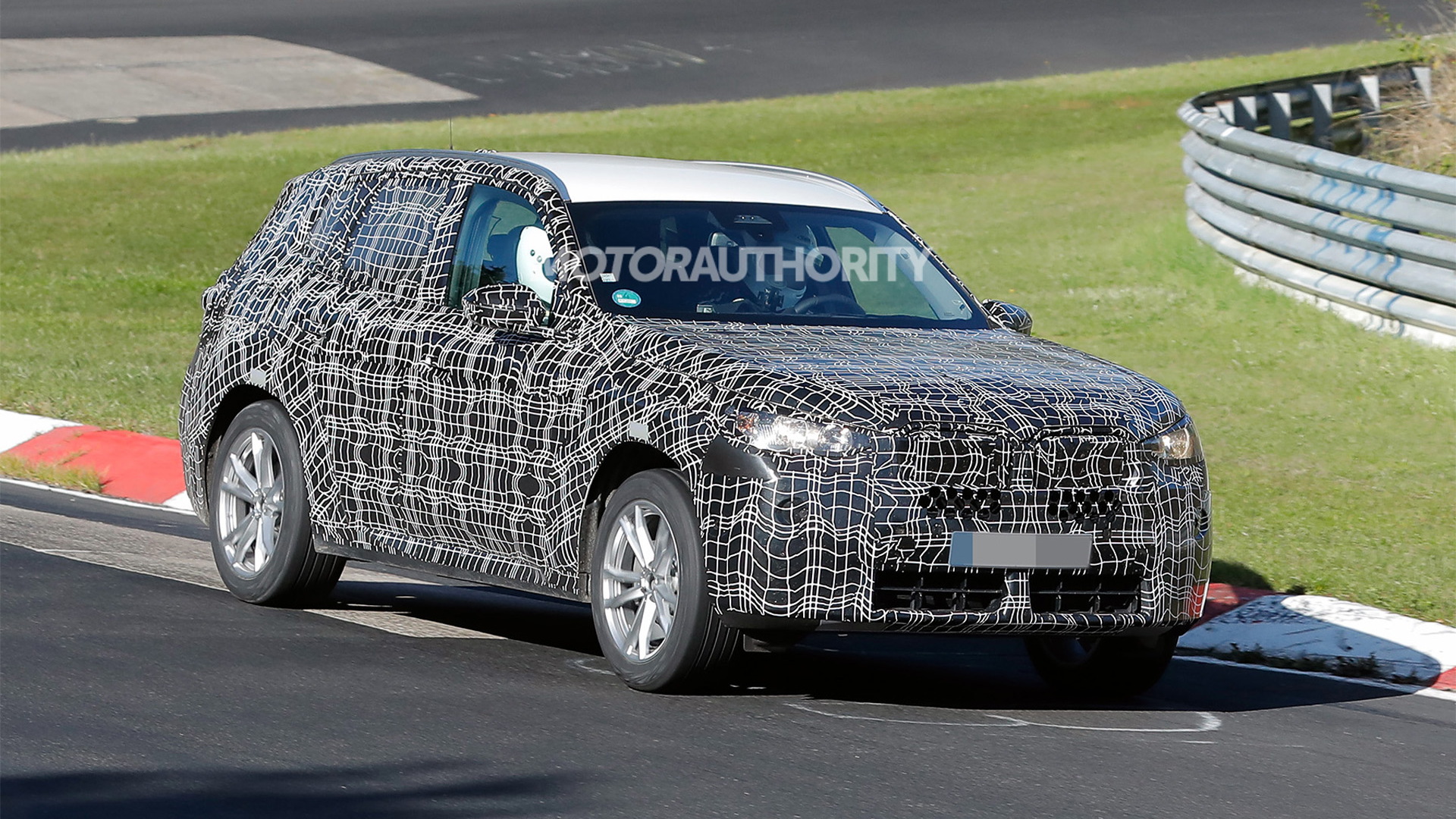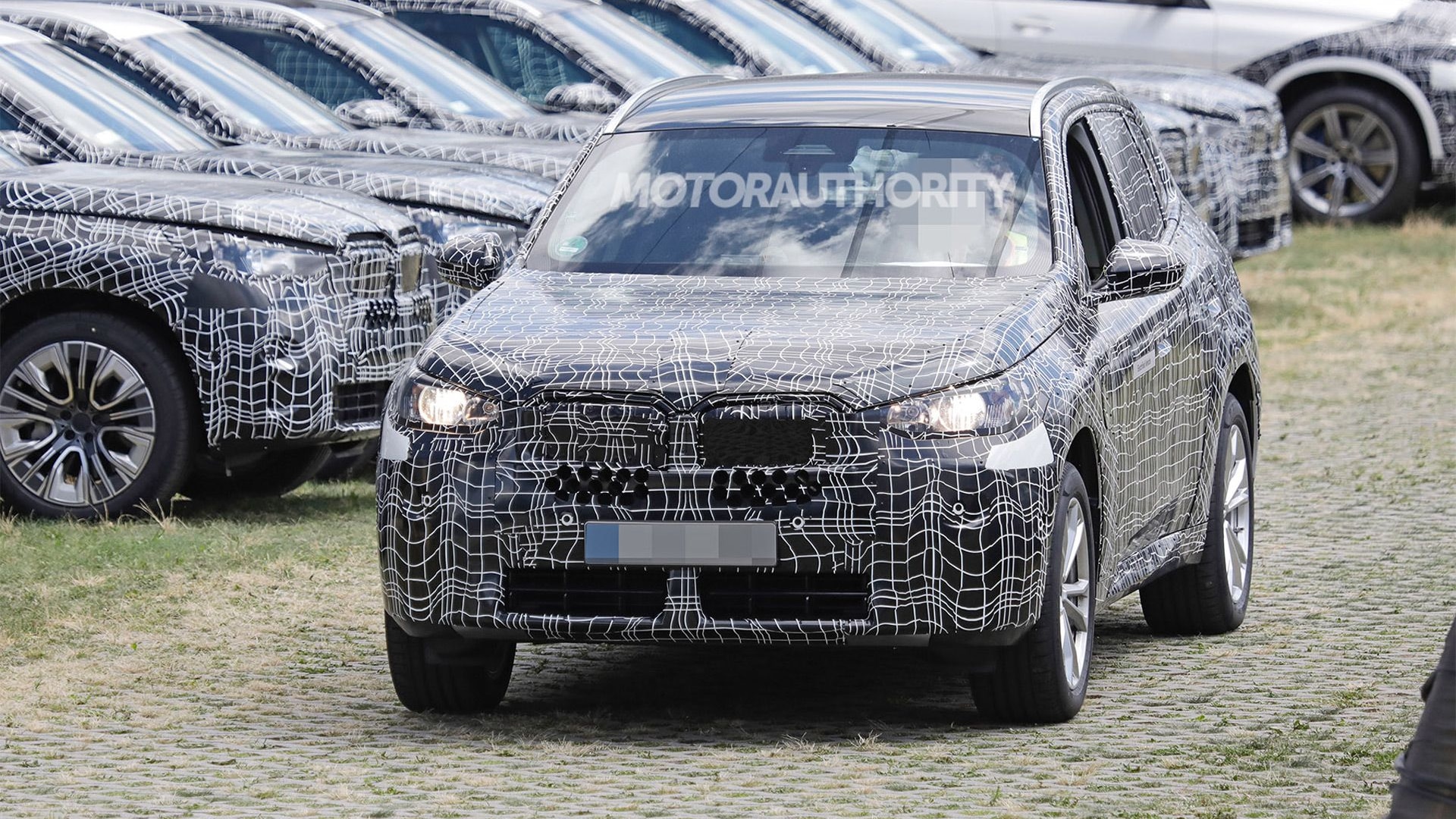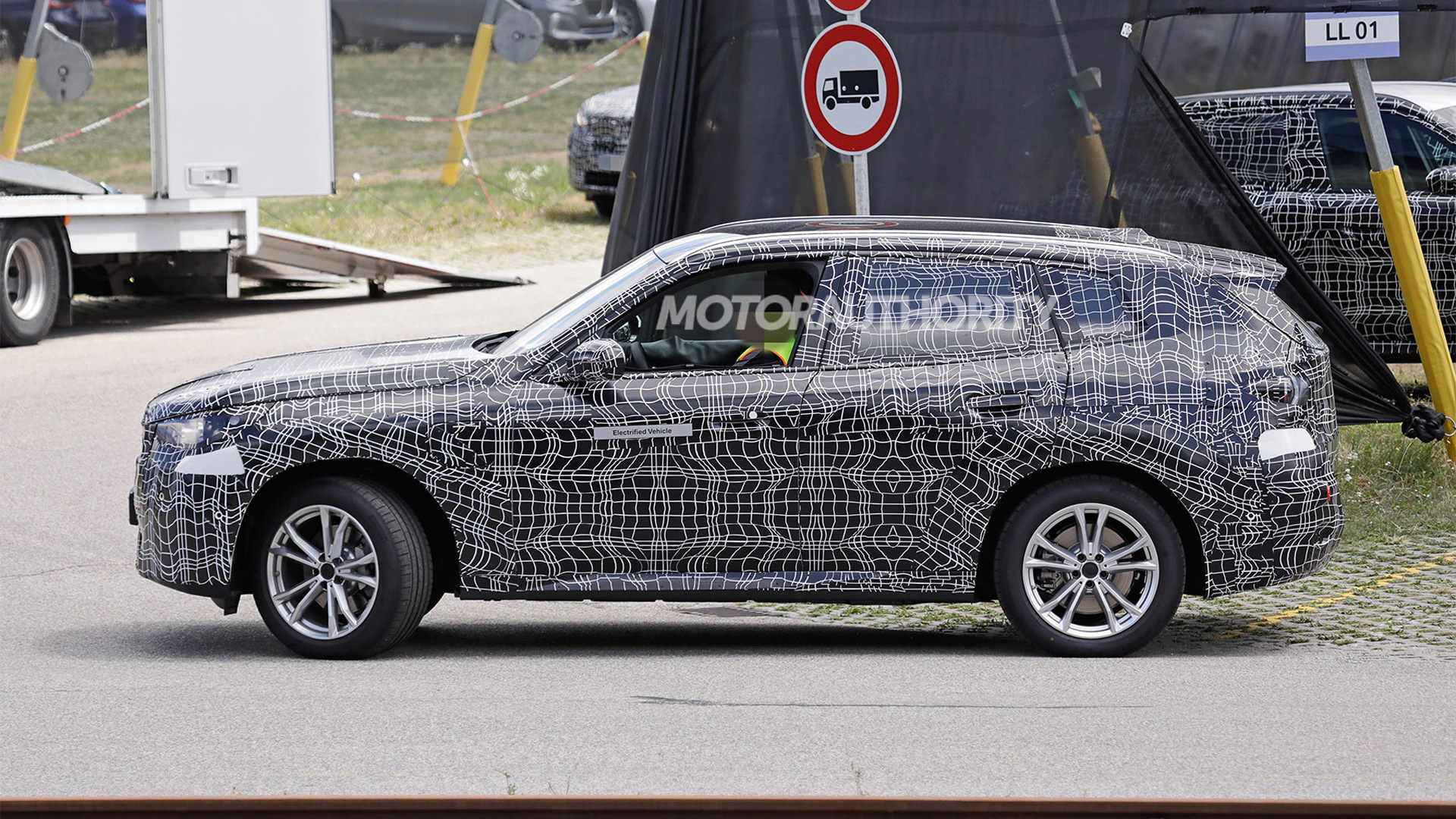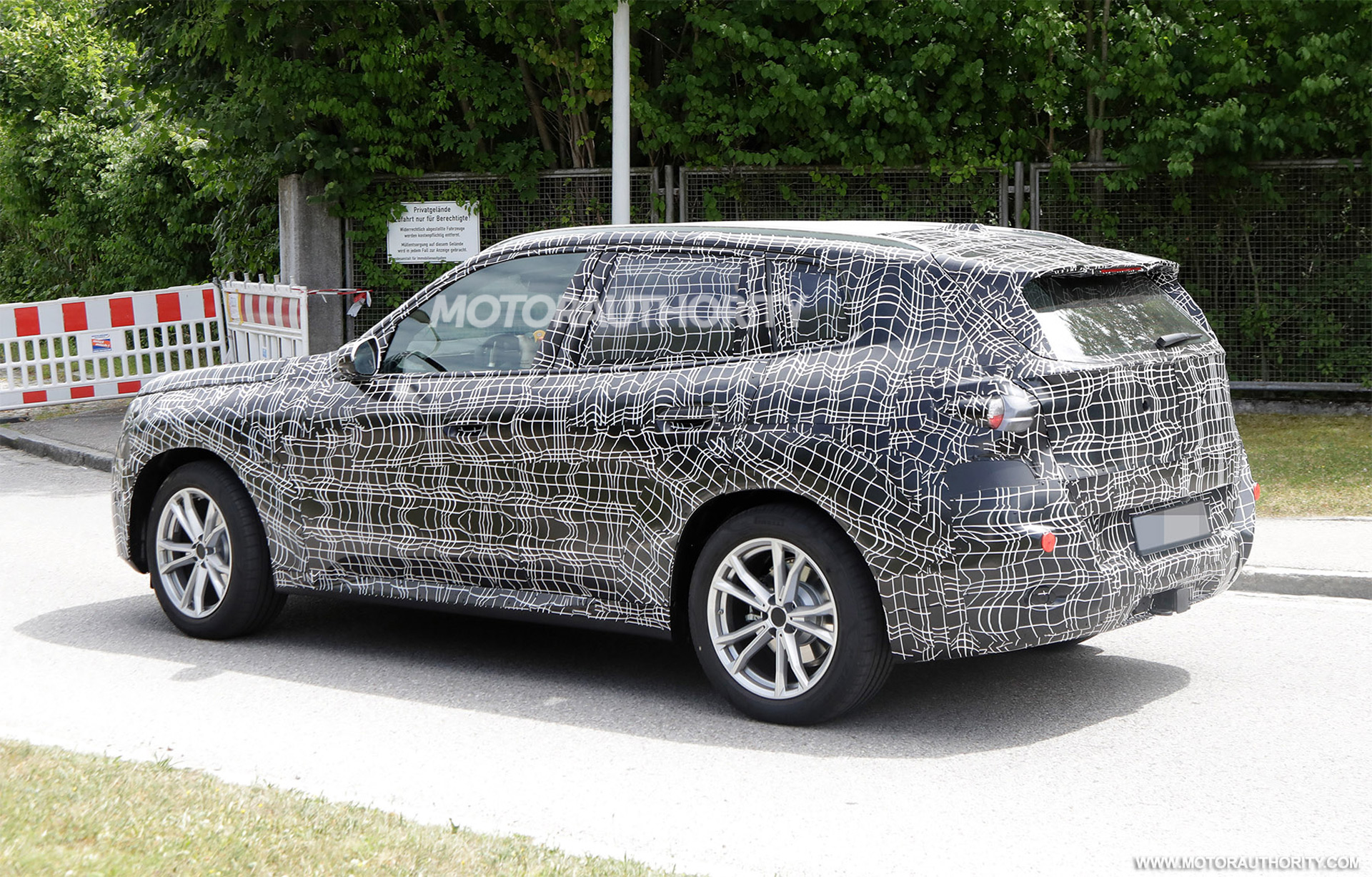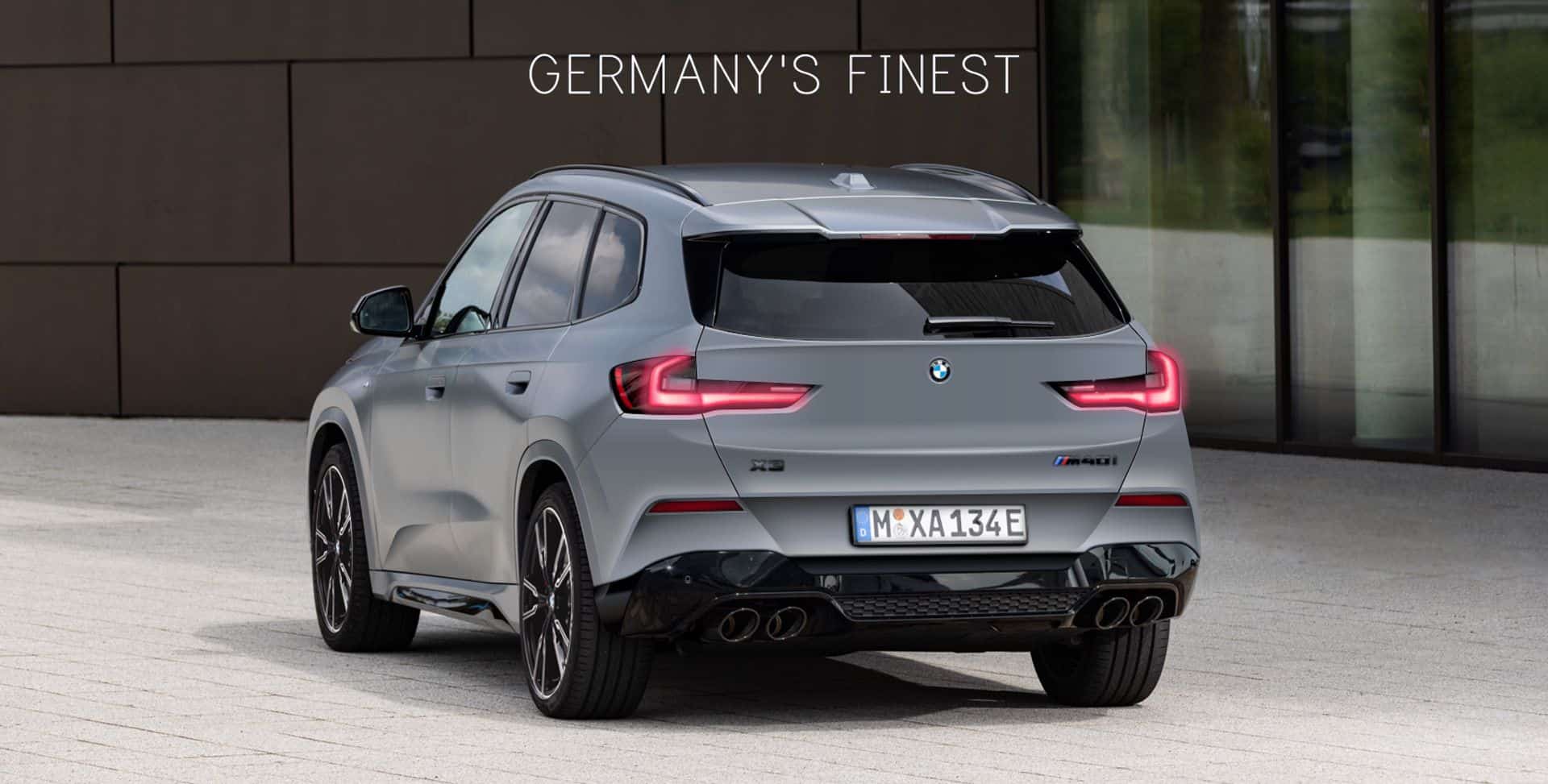
The Electric Frontier: Exploring the 2025 BMW X3’s Range and Potential
The automotive landscape is undergoing a dramatic transformation, with electric vehicles (EVs) rapidly gaining traction. At the forefront of this revolution sits BMW, a brand synonymous with performance and luxury, now actively pushing the boundaries of electric mobility. The 2025 BMW X3, a fully electric iteration of the popular SUV, promises to be a game-changer, offering a compelling blend of practicality, performance, and cutting-edge technology.
While official figures remain under wraps, early whispers and estimations paint a picture of a vehicle boasting an impressive electric range, potentially exceeding 300 miles on a single charge. This article delves into the factors influencing the 2025 X3’s range, explores the potential benefits, and assesses the implications for the future of electric SUVs.
Factors Shaping the 2025 X3’s Electric Range
The electric range of an EV is a complex interplay of several factors, including battery capacity, energy efficiency, driving conditions, and vehicle weight. Let’s examine each of these elements in the context of the 2025 BMW X3:
1. Battery Capacity: The Powerhouse of Range
The heart of any EV’s range lies in its battery pack. The 2025 X3 is expected to feature a significantly larger battery than its predecessor, potentially exceeding 100 kWh. This substantial increase in capacity is crucial for achieving the targeted 300+ mile range.
2. Energy Efficiency: Maximizing Every Watt
Beyond mere battery size, energy efficiency plays a crucial role in maximizing range. BMW is renowned for its engineering prowess, and the 2025 X3 is likely to incorporate a host of features designed to optimize energy consumption. These could include:
- Aerodynamic Optimization: Streamlined bodywork, active grille shutters, and underbody panels reduce drag, minimizing energy losses at higher speeds.
- Lightweight Materials: Extensive use of lightweight materials like aluminum and carbon fiber reduces overall vehicle weight, improving efficiency.
- Regenerative Braking: The X3 will likely feature a highly efficient regenerative braking system that captures energy during deceleration, extending the range.
- Thermal Management: Advanced thermal management systems ensure optimal battery temperature, maximizing efficiency and longevity.
3. Driving Conditions: The Real-World Impact
The actual range achieved in real-world driving conditions can vary considerably from the official EPA estimates. Factors like driving style, weather, terrain, and payload can all influence energy consumption.
- Driving Style: Aggressive acceleration and frequent braking increase energy consumption, reducing range. Adopting a more eco-conscious driving style can significantly extend the range.
- Weather Conditions: Extreme temperatures, especially cold weather, can negatively impact battery performance and range. Using pre-conditioning features and minimizing unnecessary idling can mitigate these effects.
- Terrain and Payload: Driving on hilly terrain or with heavy loads requires more energy, reducing range. Planning routes and minimizing payload can optimize range.
4. Vehicle Weight: The Balancing Act
While lightweight materials improve efficiency, the X3’s inherent size and features contribute to its weight. BMW engineers will need to strike a delicate balance between performance, luxury, and range optimization.
The Potential Benefits of Extended Range
An extended range of 300+ miles for the 2025 X3 holds significant potential benefits for both drivers and the EV ecosystem:
- Range Anxiety Relief: The extended range addresses one of the primary concerns of potential EV buyers – range anxiety. With a 300+ mile range, drivers can confidently embark on longer journeys without the need for frequent charging stops.
- Increased Convenience: The ability to travel longer distances without charging reduces the dependence on charging infrastructure, making EVs more convenient for everyday use.
- Expanded Market Reach: A longer range makes EVs more appealing to a wider audience, including those who frequently travel long distances or live in areas with limited charging infrastructure.
- Reduced Environmental Impact: By offering a longer range, the 2025 X3 encourages more people to adopt electric vehicles, contributing to a reduction in carbon emissions and air pollution.
Implications for the Future of Electric SUVs
The 2025 BMW X3’s extended range sets a new benchmark for electric SUVs, pushing the boundaries of what’s possible in the EV segment. This has significant implications for the future of electric vehicles:
- Accelerated Adoption: The extended range of the 2025 X3 is likely to accelerate the adoption of electric SUVs, as it addresses a key barrier to entry for many potential buyers.
- Increased Competition: The success of the 2025 X3 will likely spark increased competition in the electric SUV market, leading to further innovation and advancements in range and technology.
- Shift in Consumer Preferences: The growing availability of long-range electric SUVs could shift consumer preferences towards electric vehicles, ultimately leading to a more sustainable automotive future.
Beyond Range: The 2025 X3’s Holistic Appeal
While range is a crucial factor, the 2025 X3 promises to offer a comprehensive package that goes beyond mere miles. Expect features like:
- Advanced Driver Assistance Systems (ADAS): The X3 will likely feature a suite of ADAS technologies, including lane departure warning, blind spot monitoring, adaptive cruise control, and automatic emergency braking.
- Intuitive Infotainment System: The X3 is expected to boast a user-friendly infotainment system with a large touchscreen display, voice control, and seamless smartphone integration.
- Premium Interior: BMW is known for its luxurious interiors, and the 2025 X3 is likely to feature high-quality materials, comfortable seating, and a spacious cabin.
Conclusion: A New Era of Electric Mobility
The 2025 BMW X3 represents a pivotal moment in the evolution of electric vehicles. By offering a compelling combination of extended range, advanced technology, and premium features, it promises to redefine the electric SUV segment. As the world embraces a more sustainable future, the 2025 X3 stands as a testament to the transformative power of electric mobility, offering a glimpse into a future where driving is both exhilarating and environmentally responsible.
